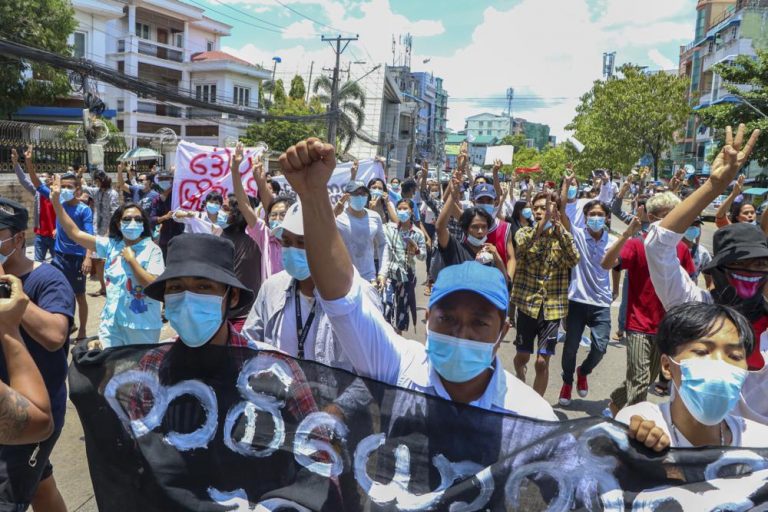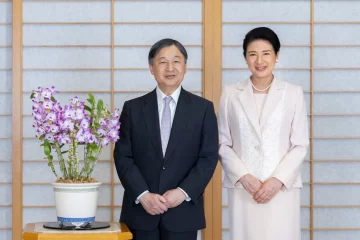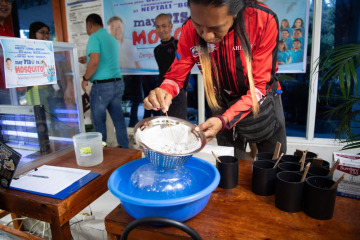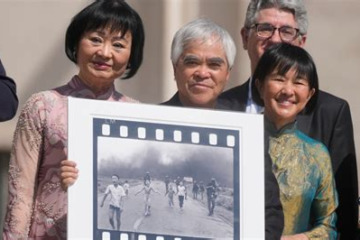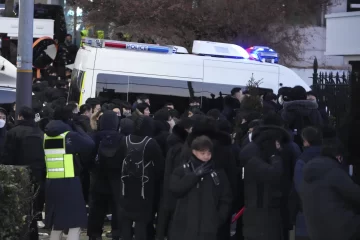Bangkok, Feb 24, 2022 — Some human rights advocates are urging governments to impose sanctions against supplying aviation fuel to Myanmar as its security forces carry out air strikes against opponents of the army-led administration.
Calls to cut off jet fuel supplies gained attention after several major oil and gas companies, including Total and Chevron, said they would withdraw from ventures in the country, potentially reducing flows of hard currency to the military.
While Myanmar still produces oil and gas in partnerships with Thai, Japanese, Chinese and South Korean companies, it has no large-scale modern refineries and imports all its aviation fuel for both civilian and military use.
Widespread nonviolent protests followed a Feb. 1, 2021, military takeover that ousted the elected government of Aung San Suu Kyi. An armed resistance has grown after peaceful protests were put down with lethal force. The country now faces an insurgency that some experts characterize as a civil war.
More than 1,560 civilians have been killed by the security forces, including some in air strikes, according to monitoring groups.
So far, no governments have banned or otherwise sanctioned supplying aviation fuel to Myanmar, although the British government recently urged companies to avoid providing products that might be used in such attacks.
“The Myanmar military regularly uses air strikes against civilian targets,” it said in a statement. “If dealing with any entity linked to Myanmar’s aviation sector, businesses should conduct thorough supply chain diligence to ensure that commodities such as jet fuel do not reach the military.”
In the past, the U.S. has barred provision of aviation fuel to Russian forces in Syria.
This week, the European Union imposed sanctions against state-owned Myanma Oil and Gas Enterprise, a joint venture partner in all the country’s offshore gas projects. That includes the Yadana gas field, which Total Energies and Chevron recently said they would quit.
Air travel with and inside Myanmar has dropped sharply due to the political violence and the pandemic, but imports of aviation fuel continue. Critics of the Myanmar military want those stopped to prevent security forces from carrying out air attacks in areas where dissidents have sought refuge, some of which are controlled by ethnic armed groups.
Those opposed to targeting aviation fuel say it would hinder commercial aviation and efforts to provide aid to tens of thousands of people displaced by civil strife after last year’s military takeover.
Burma Campaign UK said it is calling for sanctions on Myanmar companies involved in supplying jet fuel to the military and on foreign companies to prevent their involvement in “any aspect” of supplying aviation fuel to the country, including insurance and other support services.
Justice for Myanmar, a human right alliance, said it is still researching aviation fuel supply chains, but that the air attacks should stop.
“We urge governments to impose targeted sanctions on aviation fuel, as a viable way to disrupt the Myanmar air force’s ability to carry out indiscriminate air strikes,” said Yadanar Maung, a spokesperson for the group.
“The junta’s air strikes are killing civilians, destroying property, displacing whole communities and severely worsening the humanitarian crisis caused by the Myanmar military’s illegal coup,” Yadanar Maung said.
National Energy Puma Aviation Services Co Ltd. (NEPAS), a joint venture between Singapore-based Puma Energy Co. and state-owned Myanmar Petrochemical Enterprise, was Myanmar’s main supplier of aviation fuel before the military takeover. Puma Energy suspended its business there days later, leaving operations to its local partner.
Most aviation fuel for Myanmar is supplied either from Singapore or Malaysia. Marinetraffic.com and other ship tracking sources show a steady stream of oil products shipments moving between Singapore and Malaysian ports to Yangon and nearby Thilawa port.
The Panamanian-flagged chemical and oil products tanker Super Hero was moored Thursday near the terminal for Puma Energy at Thilawa after having left Singapore Refining Co. a few days earlier, ship tracking sites showed.
Myanmar port information obtained by rights advocates indicated it was a load of Jet A1 aviation fuel, however it was unclear whose product was in the shipment.
Singapore Refining Co. is a 50-50 joint venture between Chevron and Singapore Petroleum Co., which is a wholly owned subsidiary of PetroChina, one of China’s big state-owned energy giants. Previous reports have documented shipments of aviation fuel from PetroChina by tanker from Singapore.
Chevron said in response to an inquiry about the shipment that it was complying with all relevant laws and regulations, including trade sanctions, and noted its recent decision to leave Myanmar.
“As a matter of policy, we do not comment on supply and trading matters,” the company said in a statement.
In announcing its decision in January to withdraw from the Yadana offshore gas project in Myanmar, Chevron said it would work to ensure its exit was done in a “planned and orderly manner” with priority placed on the safety of its employees and operations. It’s unclear exactly how many or which companies are supplying aviation fuel to civilian and military jets. Apart from NEPAS, several other local companies, some of them known to have close ties to the military, have bid for the right to import aviation fuel. – AP


